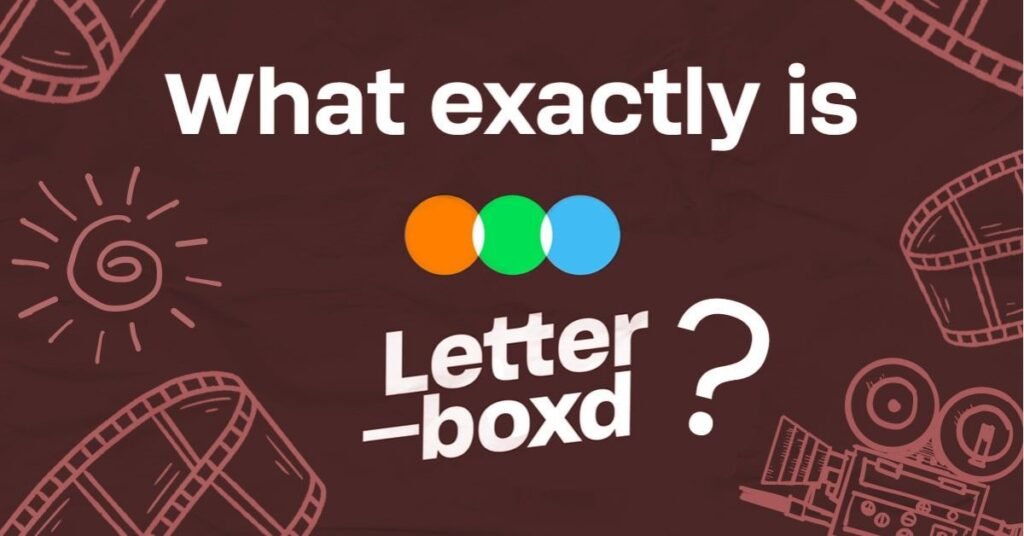The Letterboxd Quit Story in 2025 captures a growing trend: people are stepping back from hobby-tracking apps after realizing they were turning passions into chores.
From movies to workouts, tracking fatigue is pushing many to quit and rediscover the simple joy of doing things for fun.
Why the Letterboxd Quit Story Resonates
Back in January, I was setting resolutions for the year ahead. For almost a decade, I gave myself annual targets: books to finish, films to log, steps to hit.
I used Goodreads for reading, Letterboxd for films, Strava for runs, and Apple’s Health app for steps. But while drafting 2025 goals, I stopped to ask myself: was all this tracking adding anything positive to my life? Or had my hobbies quietly turned into chores?
That question sparked my own Letterboxd Quit Story. I realized I was picking short books just to hit my yearly reading target, forcing myself to watch films I didn’t care about, and running extra miles in the rain to close my daily rings.
So I quit. I deleted the apps and decided not to track anything at all, aside from the occasional glance at my step count.

Halfway through the year, I can guess I’m reading fewer books, watching fewer films, and taking fewer long walks. But I’m also enjoying myself more.
I read when I want to, watch what actually interests me, and turn back early from walks when I feel like it. These are small changes, but they remind me that free time isn’t supposed to feel like a checklist.
Stories From Others Who Quit Tracking
I’m far from the only one stepping away from hobby-tracking apps. Jenni, 28, told me that tracking her steps became toxic: “If I didn’t meet my daily goals, I felt like I had failed as a person.”
She quit the Health app after realizing it was harming her mental state. While she still logs books on Storygraph, she only shares them with her partner, avoiding the pressure of comparisons.
Ava, 27, ditched her Apple Watch for similar reasons. She felt like workouts became about hitting numbers rather than feeling good.
“I was pushing myself to do more reps and longer sessions even when it didn’t feel right, mentally or physically,” she said. Now she works out intuitively, focusing on self-care instead of self-surveillance.
Expert Opinions on Tracking Fatigue
The rise of stories like the Letterboxd Quit Story points to what experts call tracking fatigue. Eve Menezes Cunningham, a trauma-informed therapist and host of the Feel Better Every Day Podcast, explains that tracking can be helpful at first.
It can reveal what you enjoy, help monitor health symptoms, or remind you of accomplishments. This can be particularly useful for people with ADHD or trauma who struggle with “success amnesia.”
But she also warns that tracking can spiral into over-monitoring. “Life is not an assignment. You don’t have to report back on things you feel you should be doing,” she says.
Instead, she suggests writing a short daily sentence about what you enjoyed most. That way, you still reflect without turning hobbies into work.
Cunningham also recommends focusing on one habit at a time. For example, you’re more likely to stick with reading if you simply pick up a book when you feel like it, rather than forcing it into your schedule.
Another strategy is to only record highlights, like your top five books or favorite running routes, instead of logging everything. This keeps the focus on joy rather than data.

Social Buzz Around the Letterboxd Quit Story
On social platforms, the Letterboxd Quit Story has become a symbol for people rethinking their digital habits.
Posts and threads show users deleting Goodreads, turning off Apple Watch notifications, or letting go of yearly film-watching targets.
Many say they feel freer and more relaxed once they stop measuring themselves against app-based goals.
Some users admit they still peek at their stats occasionally, but no longer let them dictate their choices. Others share memes about “breaking up” with tracking apps, treating it like a cultural milestone in reclaiming leisure time.
What This Means Moving Forward
The broader lesson of the Letterboxd Quit Story is that balance matters. Tracking tools aren’t inherently bad.
For some, they spark motivation and accountability. But for many, they eventually cross into obsession, where missing a target feels like failure.
As more people talk openly about this fatigue, it could signal a shift in how apps are designed. Instead of endless metrics and competitive streaks, future hobby apps may prioritize reflection, highlights, and encouragement over raw numbers.
For now, those who have quit are rediscovering hobbies as hobbies again, something to be enjoyed on their own terms.
Whether it’s movies, books, or evening walks, sometimes it’s better to leave the numbers behind and simply do what feels good.
Also Read: Cloud Software Business Transformation 2025: Boosting Efficiency
i quit. i gotta focus on letterboxd 🧡💚💙 pic.twitter.com/UAAxgr8xGX
— nirru (@taeriblysilly) April 23, 2025

Abdul Basit is a US-based tech writer who covers Apple innovations, Tesla’s EV growth, AI breakthroughs, smartphone trends, and app reviews for global readers.
